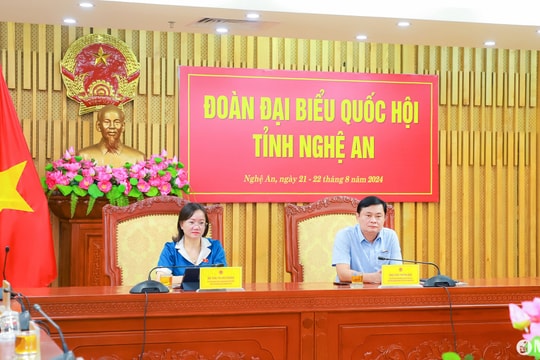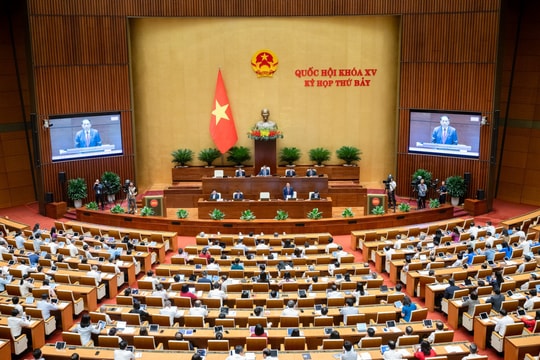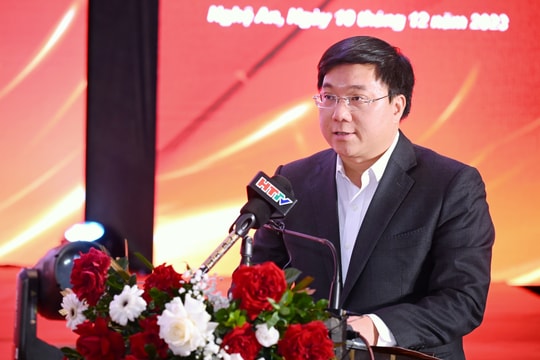Delegates from Nghe An enthusiastically discussed the draft Law on People's Public Security.
(Baonghean.vn) - Continuing the program of the 5th Session of the 14th National Assembly, on the morning of June 14, under the direction of Vice Chairman of the National Assembly Do Ba Ty, the National Assembly discussed the draft Law on People's Public Security (amended).
 |
| Overview of the discussion session on the morning of June 14. Photo: Diep Anh |
Most opinions agreed that amending the Law on People's Public Security is necessary, in order to promptly institutionalize the Party's guiding viewpoints on continuing to innovate and streamline the organization of the Ministry of Public Security to operate effectively and efficiently; meeting the requirements of protecting national security and maintaining social order and safety in the new situation.
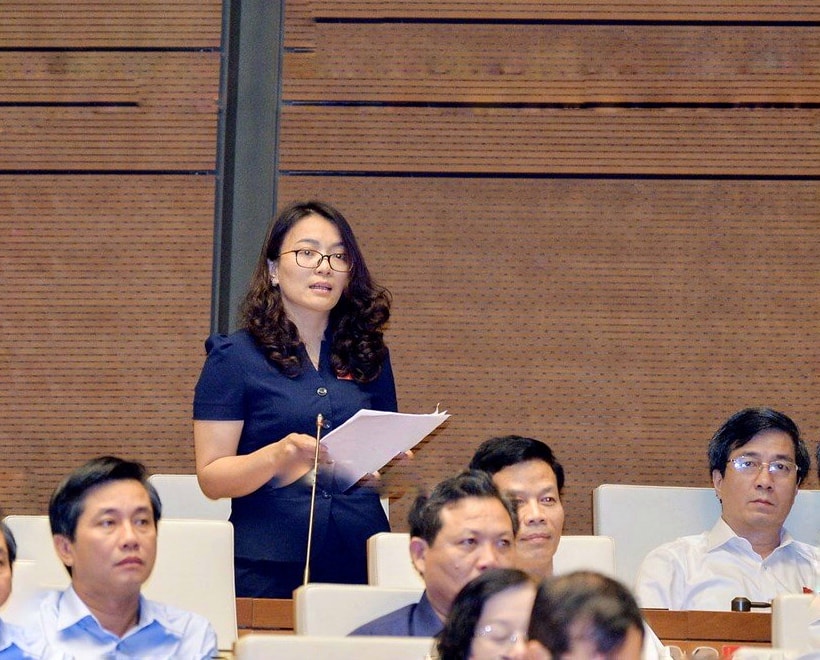 |
| Delegate of Nghe An delegation Hoang Thi Thu Trang spoke at the discussion session. Photo: Diep Anh |
Speaking at the Hall, National Assembly Delegate of Nghe An Province Hoang Thi Thu Trang said: The Commune Police is a semi-professional armed force, the core force in protecting security in the commune. Currently, the Commune Police are assigned many powers: Detaining people, criminal proceedings such as making initial records, taking statements from victims, witnesses, evidence, initial verification...
These are extremely important activities in solving cases, so if there are errors in the activities of this force, the consequences will be difficult to overcome. Meanwhile, the Law also gives the commune police the right to use many weapons and supporting tools: rifles, batons, pepper sprays... these activities affect human rights.
However, with high task requirements and great authority, the standards and educational level for selecting commune police are being implemented according to Article 4 of Decree 73 of 2009. Specifically, the chief and deputy chief of commune police must have completed high school, and police officers must have graduated from junior high school; in mountainous, remote and isolated areas where the above standards are not met, the chief or police officer may only have completed primary school.
It is worth noting that, in addition to this standard, the Decree also does not have a standard on pre-employment training.
Although appreciating the contributions of the communal police in recent times, the Director of the Nghe An Province Judgment Enforcement Department also frankly pointed out that the communal police force is not strong enough in terms of quantity and quality. In recent times, the activities of this force have had many violations.
The cause of this situation, according to delegates, is that current regulations have assigned the commune police too many tasks, complicated cases, and great authority while the input requirements, capacity of this force as well as conditions to ensure policies still have many shortcomings.
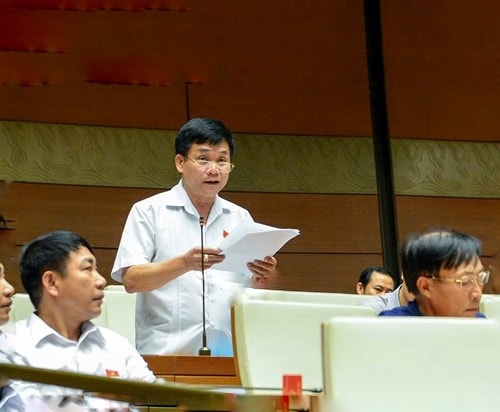 |
| Deputy Head of the National Assembly Delegation of Nghe An province Tran Van Mao. Photo: Diep Anh |
Sharing this view, Deputy Head of the National Assembly Delegation of Nghe An Province Tran Van Mao analyzed: Reality shows that the rural security situation is increasingly unstable, especially cases of complaints and social conflicts related to land, management and land recovery to implement socio-economic development projects.
Although the Party and State have paid attention to strengthening and perfecting the grassroots political system, it still has many limitations. Security and order protection work at the commune level still has many weaknesses. The commune police force is not strong enough, has poor quality, and is lacking in quantity.
''That reality places heavier responsibility on the communal police force, requiring all aspects to be strengthened so that the communal police can effectively carry out their assigned tasks. However, the project needs to carefully consider the roadmap to gradually regularize this force, avoiding disruption and affecting the current communal police force'' - Mr. Mao suggested.
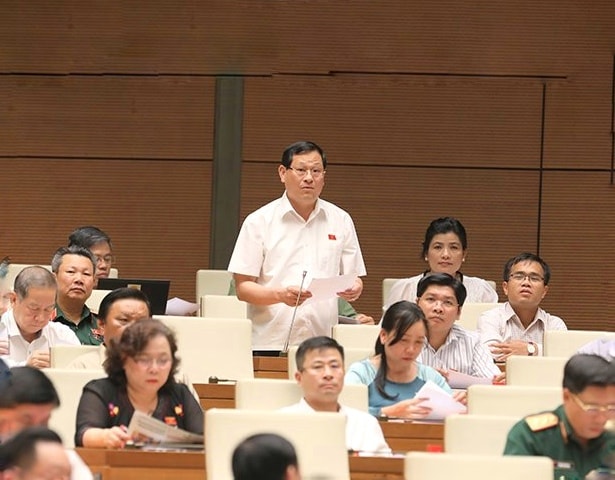 |
| Delegate Nguyen Huu Cau participated in the discussion. Photo: Diep Anh |
Speaking at the meeting, National Assembly Deputy, Director of Nghe An Provincial Police Nguyen Huu Cau said that, implementing the policy of the Party, National Assembly, and Government on restructuring the apparatus towards streamlining, effective and efficient operations, the Ministry of Public Security is the pioneer in eliminating intermediate levels. "It can be said that this is a historic, radical and far-reaching change. With such an organization, the amendment of the Law on Public Security is inevitable and objective to help the Public Security force quickly stabilize its organizational structure and operate more effectively and efficiently. With the consistent thinking of the Ministry, the organization and arrangement of the apparatus does not eliminate any functions or tasks, does not increase the payroll, and does not increase the regime and policies. In a short time, the Ministry of Public Security has urgently prepared a complete and convincing draft Law to submit to the National Assembly. This is also the first draft Law that the National Assembly has allowed to study and discuss when the Ministry of Public Security organizes to perfect its apparatus" - Delegate Nguyen Huu Cau emphasized.
The Director of Nghe An Police also hopes that the National Assembly deputies will be extremely cautious, consider carefully and closely, and encourage, support and create a spread so that the Ministry of Public Security, as well as other ministries and branches, can continue the work of renewing the apparatus, which is "very touching, very sensitive and difficult".
Expressing support for the regulation that the Director of the Provincial and Central City Police Department in localities classified as provincial-level administrative units of type I has the highest rank of Major General, delegate Nguyen Huu Cau explained: According to current regulations, the Director of the Provincial Police Department has a position equivalent to that of a Department Director, and is planned and promoted directly to the level of Deputy Minister. "If these two ranks are different, it will be very difficult to carry out rotation, appointment, and implementation of policies," Mr. Cau analyzed.

.jpg)
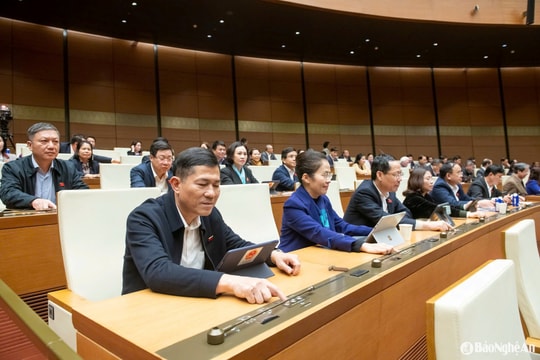
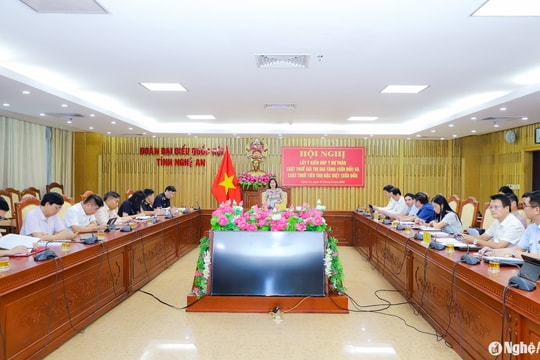
.jpg)
